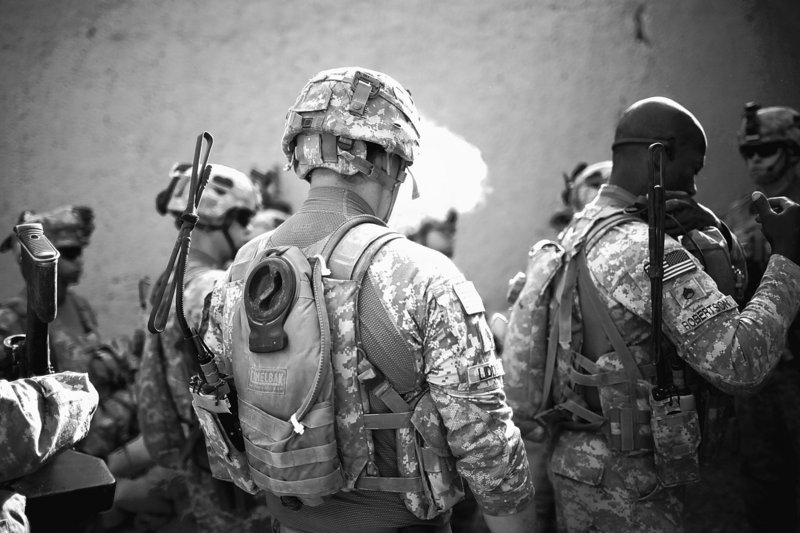KABUL – Pakistani officials inside and outside Afghanistan on Monday reacted angrily to the publication of a trove of secret U.S. military documents that suggested Pakistan’s spy agency collaborated with the Taliban, and they said the United States is using Pakistan as a scapegoat for its failing war.
Diplomats and intelligence officials dismissed the reports as false and warned that they could have damaging consequences for Pakistan’s relations with the United States, particularly whether the Americans could be trusted with sensitive information.
Pakistan’s ambassador to Afghanistan, Mohammad Sadiq, said in an interview in Kabul that regardless of how the documents emerged, they cast a poor light on the Obama administration.
“If the documents were stolen, it’s a very big question mark … because that creates a lot of doubt about the security of supposedly confidential information,” Sadiq said. “If it’s part of the official leak policy, then it must be timed.”
“These allegations are always repeated,” he said. “I don’t see anything new.”
As word spread Monday about the publication of more than 90,000 secret U.S. military documents by the website Wikileaks.org, Afghans and others in Kabul who have lived through the war expressed little surprise at their revelations. Among Afghans, there is widespread suspicion that Pakistan’s intelligence service, the ISI, supports the Taliban leadership, and residents here are also painfully aware of the harm wrought on civilians from insurgents and NATO forces.
“I think it’s not a revelation for the Afghan people,” said Haroun Mir, a political analyst in Kabul. “We have been saying this for quite a long time, that Pakistan is not honest when it comes to their cooperation in the war on terror. Now I think it’s up to the U.S. administration what to do about it.”
“Are they going to continue to reward bad behavior?” he added, citing U.S. Secretary of State Hillary Rodham Clinton’s visit last week to Pakistan where she pledged $500 million in additional aid.
President Hamid Karzai was “shocked” that such a “huge number of documents were leaked,” his spokesman, Wahid Omar, told reporters in Kabul, but on the substance of the documents, “the president’s immediate reaction was that most of this is not new.”
Omar said the disclosures would help raise world awareness about two issues that the Afghan government has long raised with NATO forces: the role of Pakistan in fomenting the insurgency and the killing of civilians.
“We have always told our international partners that we will not succeed in Afghanistan unless we pay attention to the places where terrorism is being nurtured,” Omar said.
The leaks might also damage the U.S. military’s credibility in the eyes of the Afghan people, said one former Afghan government official.
The disclosures “will perhaps increase the sense of hopelessness” among Afghans about the extent of the insurgency and create “greater skepticism when Afghans are told of progress,” the official said on condition of anonymity. “The Afghan government will feel vindicated and claim that the U.S. ignored for too long its allegations against Pakistan.”
A senior ISI official, speaking on condition of anonymity according to agency custom, said the agency was still sifting through the documents. But the official said the allegations did not sound new, and that they appeared to contain no concrete evidence of ISI backing for the Afghan insurgency.
“In the intelligence business, anything and everything is reported. If tomorrow a person walks into my office and says he saw Osama bin Laden or XYZ, I have to report that. That does not become credible information or intelligence until and unless that is corroborated,” the official said. “The majority of these reports coming out of WikiLeaks fall into that category.”
The official said, however, that some of the allegations sound “very damning” and could erode support among the American public for the U.S. alliance with Pakistan.
Send questions/comments to the editors.



Success. Please wait for the page to reload. If the page does not reload within 5 seconds, please refresh the page.
Enter your email and password to access comments.
Hi, to comment on stories you must . This profile is in addition to your subscription and website login.
Already have a commenting profile? .
Invalid username/password.
Please check your email to confirm and complete your registration.
Only subscribers are eligible to post comments. Please subscribe or login first for digital access. Here’s why.
Use the form below to reset your password. When you've submitted your account email, we will send an email with a reset code.